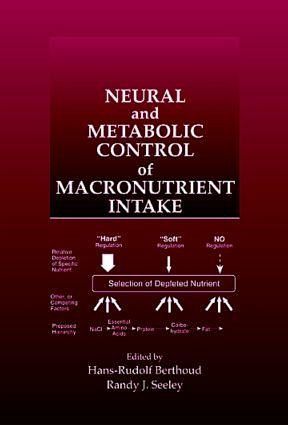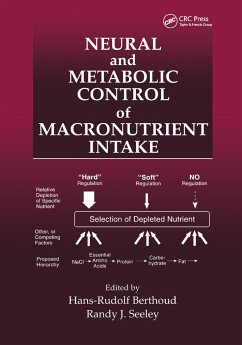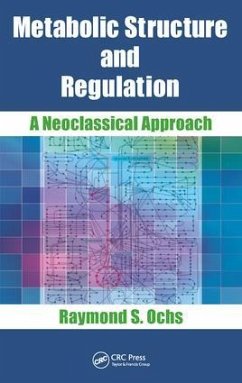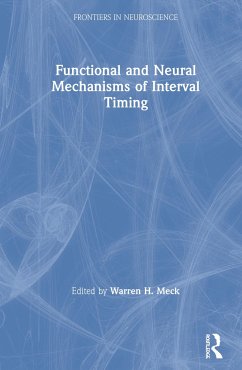
Neural and Metabolic Control of Macronutrient Intake
Versandkostenfrei!
Versandfertig in 1-2 Wochen
226,99 €
inkl. MwSt.

PAYBACK Punkte
113 °P sammeln!
When an excessive proportion of the human energy requirement is derived from fat, the likelihood of obesity increases. Any such individual is at risk for diabetes and cardiovascular disease- grave and costly health hazards. The selective control of fat ingestion is a promising solution to these concerns. Existing data suggests that macronutrient intake can be manipulated. Further research is working to create pharmacological tools that will suppress fat consumption. It will also be possible to fight obesity, heart disease and diabetes. Neural and Metabolic Control of Macronutrient Intake syste...
When an excessive proportion of the human energy requirement is derived from fat, the likelihood of obesity increases. Any such individual is at risk for diabetes and cardiovascular disease- grave and costly health hazards. The selective control of fat ingestion is a promising solution to these concerns. Existing data suggests that macronutrient intake can be manipulated. Further research is working to create pharmacological tools that will suppress fat consumption. It will also be possible to fight obesity, heart disease and diabetes. Neural and Metabolic Control of Macronutrient Intake systematically discusses the known physiological mechanisms involved in macronutrientselection, including their molecular, genetic and neurochemical aspects. The book is also a critical review of the hypothesis that ingestion of the three nutrients is regulated by separate neural control mechanisms, leaving open the possibility that strategies could be devised to intervene in bodily control systems and alter the proportion of fat in the diet.This reference provides three types of information: First, the basic background of the biochemical and physiological systems as they relate to macronutrient selection. Second, opinions and data concerning to what degree animals and humans show evidence of macronutrient selection. And, third, evidence about how the central nervous system might be involved in the choices animals make among macronutrients.














